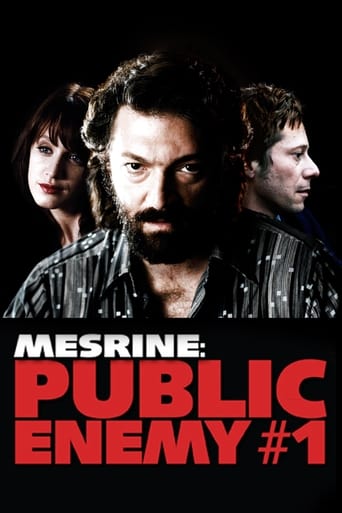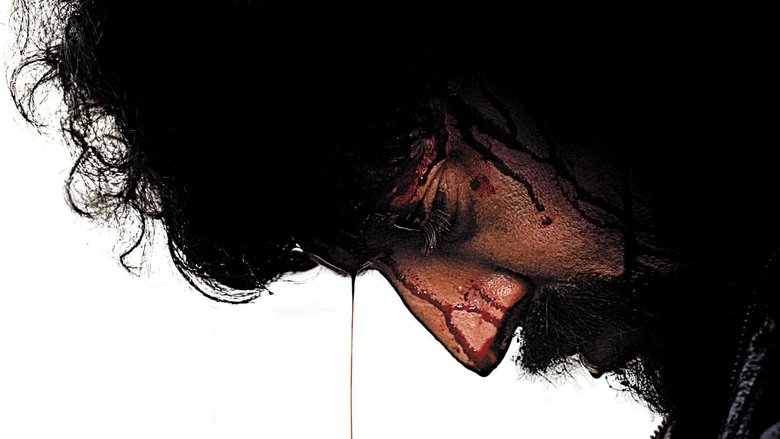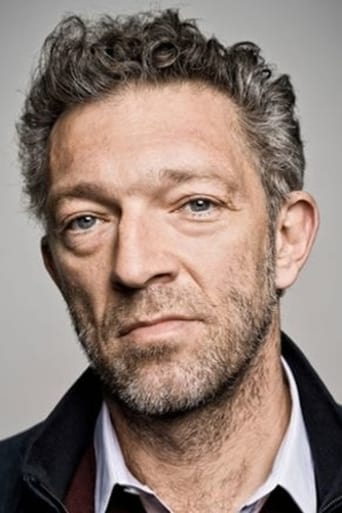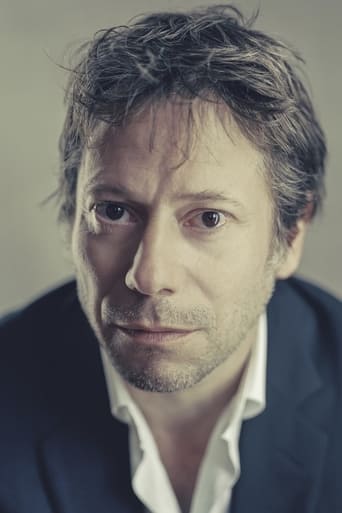Mesrine: Public Enemy #1 (2008)
The story of Jacques Mesrine, France's public enemy No. 1 during the 1970s. After nearly two decades of legendary criminal feats -- from multiple bank robberies and to prison breaks -- Mesrine was gunned down by the French police in Paris.
Watch Trailer
Cast
Reviews
Overrated
Load of rubbish!!
Did you people see the same film I saw?
Story: It's very simple but honestly that is fine.
The story of Jacques Mesrine, France's public enemy No. 1 during the 1970s. After nearly two decades of legendary criminal feats - from multiple bank robberies and to prison breaks. Mesrine: Part II - Public Enemy #1 fixed some of the problems that Part 1 had for example this one is far more interesting sure there are some couple of pacing issues still but Vincent Cassel is way good for me to care about the pacing anymore. What i actually found disappointing was the ending i mean i understand what was going to happen but this was a guy that even cops feared and the way that he goes out was kinda humiliating but overall really great movie, great performances and a lot of good action. I'll give it an 7.5/10
I ended the review of "Death Instinct" with the following statement: "Mesrine cared enough to leave a legacy that he wrote it himself. That a film was adapted from it says it all, and that one movie wasn't enough to cover everything says even more".Now, I realized that even two movies couldn't actually do 'justice' to the self-proclaimed anarchist who constantly defied it. And I couldn't possibly write a review before reading the autobiography he wrote during his period at La Santé jail for once that he wasn't busy masterminding an escape.With manly gusto, Cassel rendered most identifiable traits of Mesrine but the book made them understandable from a skeptical perspective. Some say "no honor among thieves". But even the cops acknowledged that Mesrine was a man of his word. The film opens with a negotiation with his rival Broussard. Mesrine is cornered and has a girl in the house and no chance to escape, but even in defeat, he stays in command.He gives his word not to open fire in exchange of twenty minutes; Broussard knows Mesrine will burn some incriminating papers, but anything to avoid the bloodshed. He earns Mesrine's respect, and even more when he accepts to come unarmed as a way to earn the arrest. Mesrine welcomes him with champagne and cigars. After all, if you're going to be arrested, why not do it with some style? It says something crucial about the man; he valued relationships more than money or freedom. Didn't he get back to the Canadian penitentiary he had just escaped from i Canada, because he promised to get his friends out?Mesrine makes no secret that he's a criminal, that he always wanted the easy way (that wasn't that easy), that he regarded working men as castrated slaves who resigned to a life of mediocrity unchained to the alarm-clock. You can't read the first pages without getting some "Goodfellas" vibes, but the kinship between Mesrine and Henry Hill's stops when you realize it isn't just a choice of lifestyle but a case of determinism guided by a sense of social revolt à la Camus' "Stranger". The greatest enemy of Mesrine isn't the police but the petty representatives of a system that "good" people respect out of cowardice rather than free will.And Mesrine hasn't enough tough words to denounce the prisons: instead of giving inmates chances for rehabilitation, they only break their spirit or turn them to into tougher and ruthless criminals. That's why he always escaped, and the book he wrote preceded the most sensational of all, it's not just about determination but competence, too. The escape from the trial by hiding gun in the toilet was a masterstroke but the book makes it even more impressive because Mesrine planted the gun before his arrest. He anticipated the possibility and planned the escape 'just in case'. Anticipation is the key to success and Mesrine wasn't only brawn, his brain was his biggest asset.Now, don't get the wrong idea, competence and honor don't make him "honorable", still, his ego wouldn't have tolerated any defaming accusation, he was a gangster, a killer, who could kill cops but no civilians, he loved children, animals, braved all the risks to go visit his dying father, he was a master of disguise who couldn't disguise his feelings when it came to love, as he could write passionate and romantic declarations of love to his women. He 'finished' two Canadian rangers by executing them in the head but he felt more remorseful toward that bird he accidentally shot when he was twelve. As regret, he only wished they didn't draw their guns but they knew the rules, they played, were slower, and lost. Anyway, the way he saw it, he never gratuitously killed.So he knew his value and operated in an endless spiral of bank robberies and parties, only punctuated by short periods of jail. That was his routine, he couldn't stop. At one point, his partner in crime Charlie leaves him because he knows he reached the no-return point. Mesrine moves forward, it's the business he's chosen, he loved the taste of adrenaline and the testosterone-driven life, he says that the day the nation gave him a weapon to fight the Algerians; he couldn't get rid of it. It became a drug. The same year, "The Hurt Locker" was released and it started with the quotation that 'war was a drug'. Mesrine was addicted too, he cherished the risk, he didn't care about his own life as long as he had a chance (he never foolishly risked his neck) but he never feared death, which made him even more dangerous, death was still a better option than jail, and he proved it four times.He knew Karma would finally have the last word. And the ending was the one part he could have never written, but he foreshadowed it. He knew police would never give him a chance in an ambush. They didn't, he was killed without summation, with explosive bullets (prohibited) and the most shocking moment was when a cop coming from another car gave him the same treatment than for the Canadian rangers. Mesrine never believed in the 'blaze of glory' death but I guess if he wrote a book from beyond-the-grave, he wouldn't have been much spiteful toward his executioners, he knew the rules, he played and lost, like the Canadians, fair trade.I don't feel much admiration toward him, but who doesn't want to be a tiger rather than a sheep. I guess that's the power of cinema, to make us live a character's life by proxy, admiring a bad guy the time of a film and then come to your sense. Still, if you read the book, it'll take more time. It doesn't say that there is honor among thieves; just that there are brave people and cowards in every kind of people. And gangsters are people, too.
In 1973, Jacques Mesrine (Vincent Cassel) is back in France with a new robbery crew and new girlfriend Sylvia Jeanjacquot (Ludivine Sagnier). They are arrested but he escapes during court. He continues his criminal activities until police detective Broussard tracks him down. He's finally put in prison. He reconnects with his daughter and writes a book about his exploits. He befriends fellow inmate François Besse (Mathieu Amalric) and with others, escapes once again. He starts courting the media as a revolutionary. He kidnaps billionaire Henri Lelièvre and finally in 1979, he is gunned down in an ambush.Vincent Cassel is great. This is a string of chaos and crimes. It's insane that he keeps escaping. It's violence and crimes without relief. It's not really a glossy crime drama but it does not let up. Again like Part 1, I would suggest a better medium for the material would be television. It allows the characters to breathe and the story to build.
Once gain directed by Jean-François Richet, Mesrine: Public Enemy No.1 (Part 2) continues on from Mesrine: Killer Instinct (Part 1) the outlaw odyssey of Jacques Mesrine (Vincent Cassel), the legendary French gangster of the 1960s and 1970s who came to be known as French Public Enemy No. 1 and The Man of a Thousand Faces. Essentially, this film focuses on the latter half of Mesrine's life, based on Mesrine's memoirs. Whereas the first film focused on Mesrine's rise from the average joe to a big time criminal, this film shows the events after Mesrine has been declared Public Enemy No.1 in France, and then his eventual demise. (My review of Part 1 is here.) In this film, Mesrine appears to have gained some weight and seems to be balding. He is also at the height of his game and notoriety. He has been playing the media, which has been labeling him a "Robin Hood," of sorts. Meanwhile, he has been declared "Public Enemy No.1" in France. One can guess that things will start to go downhill for him. As indicated in the first film, Mesrine will eventually be gunned down.The visuals are grittier this time around, more modern, and much of the action takes place in the city. As opposed to the deep reds and greens of the first film, the modern environment is more gray with contrasts. The first film felt more "old school" Hollywood. It is more modern here. We now see more sideburns.My complaint for the first film was that it felt episodic and crammed together as we watched Mesrine going from one caper to the next across a span of many years, sometimes almost like a documentary. This time, the film takes place mostly in the 70's and a less condensed period of time. The pacing is noticeably more even. More importantly, we also get to see more aspects of Mesrine's personality, his thoughts, and there are occasional contemplative scenes. If the first film was more action-driven, this one feels more character-driven.Vincent Cassel is terrific as usual playing Mesrine, and here, he is now the man people know him for, he is more comfortable in his skin, confident, and has more wisecracks to dish out. Proud of his growing notoriety and his ability to manipulate the media, Mesrine appears to be having a lot of fun here as well as Cassel playing him. Olivier Gourmet plays Le commissaire Broussard, who is leading a task force to apprehend Mesrine. Broussard and Mesrine appear to have a respectful mutual understanding of each other. Broussard appears relaxed and fairly controlled most of the time, and compared to the vast emotional range of Mesrine, Broussard can feel a bit two dimensional. Matthieu Amalric is terrific as the bulgy-eyed French criminal named François Besse, a master of prison-escapes, whom Mesrine befriends in prison. After helping Mesrine escape, Besse and Mesrine begin working together in their heists. Besse is essentially the opposite of Mesrine--he is efficient, intelligent, lacks showmanship, and takes his work more seriously. There's a revealing moment in the film where Mesrine argues with Besse about their end goals.Mesrine has also gotten a new woman, Sylvia (Ludivine Sagnier), who becomes a bit of a Bonnie to his Clyde in his heists. There's a bit of familiar glamour and lightness to the film when they dress up and start spending the money away. Cue the happy music and the lady trying on expensive hats. As in the first film, these moments are contrasted with Mesrine's violent side. The darkest moment in the film is when Mesrine's partners up with the politically radical Charlie Bauer (Gerard Lanvin) and kidnaps and tortures a journalist who had written unflattering things about him. The scene is harsh and gritty.Ultimately, the film's greatest asset is still Vincent Cassel's amazing performance and believability. The action scenes and the progression of events are solidly directed by Jean-François Richet. Admittedly, this film still feels rather episodic like the first film. But, it is deeper. A good, solid cap to the 2-part series.*** 1/2 out of **** stars You can also follow my movie reviews on http://twitter.com/d_art





